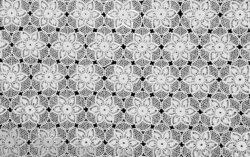
In the chaos of our daily lives, finding moments of peace can be challenging. Surprisingly, one avenue toward tranquility lies in the seemingly mundane act of cleaning. The art of cleaning, when approached with mindfulness, can be a meditative practice that not only tidies our physical spaces but also clears our mental clutter.
The essence of meditation lies in being present. Cleaning offers an opportunity to focus on the task at hand, fostering a state of mindful awareness. Engaging our senses in the act of cleaning—feeling the textures, hearing the sounds, and smelling the scents—grounds us in the present moment.
Tidying physical spaces can be symbolic of decluttering the mind. As we organize our surroundings, we create mental clarity. The act of discarding unnecessary items parallels the practice of letting go in meditation. Both invite a sense of liberation and lightness. In this extensive guide, we will explore the intersection of cleaning and meditation, offering insights, practical tips, and a journey toward finding Zen in tidying.
Here is our related post on The Connection Between Clutter and Mental Clarity which you will not want to miss.
The Practice of Mindful Cleaning
Preparation for Mindful Cleaning
- Set an Intention: Before starting, set a positive intention for the cleaning session. This could be creating a serene space or simply embracing the process with gratitude.
- Breathing Exercises: Begin with a few minutes of deep breathing to center yourself. Inhale positivity, exhale stress.
Mindful Cleaning Techniques
- Sweeping Meditation: Whether sweeping a floor or wiping surfaces, approach the task with deliberate, flowing movements. Let each stroke be a mindful act.
- Conscious Dishwashing: Turn dishwashing into a meditative practice by focusing on the sensation of water, the temperature, and the repetitive yet calming motion.
Embracing Silence
- Noise Reduction: Minimize distractions by cleaning in silence or with soft, calming music. Embrace the opportunity to be with your thoughts.
- Mantras or Affirmations: Repeat simple mantras or affirmations during cleaning. For example, “I am creating a peaceful space,” reinforcing positive energy.
The KonMari Method: A Path to Mindful Tidying
Introduction to KonMari
- Principle of Joy: Marie Kondo’s KonMari method emphasizes keeping only items that spark joy. This philosophy aligns with the mindfulness of choosing what truly matters.
- Categorization: Tidying by category rather than location promotes a focused and thorough approach, aligning with the principles of meditation.
Steps of the KonMari Method
- Clothing: Tackle clothing first, holding each item and assessing its impact on your joy. This process encourages a thoughtful and meditative connection with your belongings.
- Books, Papers, Komono, Sentimental Items: The method’s structured approach applies mindfulness to every category, creating a harmonious living space aligned with your values.
Feng Shui and Mindful Cleaning
Introduction to Feng Shui
- Energy Flow: Feng Shui is the ancient Chinese art of arranging spaces to optimize the flow of energy or “qi.” A clean and organized space facilitates positive energy flow.
- Five Elements: Incorporating the five elements of wood, fire, earth, metal, and water in your cleaning and decorating aligns with the principles of balance in Feng Shui.
Mindful Arrangement
- Purposeful Placement: Mindfully arrange furniture and decor items to enhance the flow of energy in a room. This practice encourages a sense of tranquility.
- Decluttering Spaces: Feng Shui emphasizes decluttering as a means of allowing energy to move freely. The act of decluttering aligns with the principles of mindfulness and meditation.
Benefits of Combining Cleaning and Meditation
1. Physical and Mental Well-being
- Reduced Stress: Mindful cleaning reduces stress by promoting a calm and focused state of mind.
- Increased Energy: A clean and organized space enhances energy flow, contributing to a more vibrant and positive atmosphere.
2. Enhanced Creativity
- Clutter-Free Mind: Tidying up mentally declutters your mind, creating space for fresh ideas and creative thoughts.
- Inspired Environments: A well-organized and serene space can serve as a canvas for inspiration, boosting your creative endeavors.
See also our post on How to Clean and Disinfect High-Touch Surfaces in Public Spaces
Cultivating Serenity through Cleaning
In the hustle and bustle of modern life, the intersection of cleaning and meditation offers a sanctuary of peace. Embrace the practice of mindful cleaning as a journey toward finding Zen in tidying. Whether you adopt the KonMari method, incorporate Feng Shui principles, or simply engage in mindful cleaning techniques, the goal is to create a space that nurtures both your physical and mental well-being. As you sweep away the dust, may you also sweep away stress, creating a harmonious environment that reflects the tranquility within. Embrace the transformative power of mindful cleaning and discover the serenity that arises when you find Zen in tidying.



